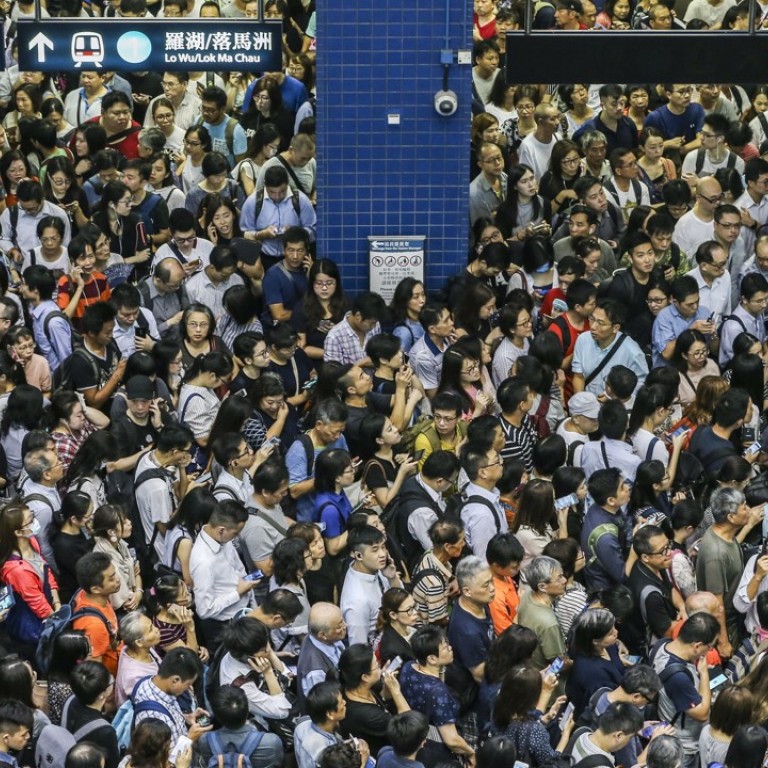
Time off work in the wake of typhoons has to be considered
Hong Kong reacted well to the battering it received from Mangkhut, but transport chaos and misery the day after has to be addressed for the future
Hong Kong’s government did a good job warning of the need for preparedness for Typhoon Mangkhut and putting in place protective measures. We can be proud of the city’s emergency services and civic-minded citizens who helped victims and cleaned up after the devastating winds. All deserve our heartfelt thanks. But their tremendous efforts were too quickly overshadowed by calls for the authorities to declare Monday a day off work so the city could recover from its transport chaos.
Mangkhut’s 175km/h sustained winds smashed thousands of windows and brought down more than 1,500 trees, many across roads and rail lines. Transport havoc was inevitable, but still the MTR managed to maintain a world-class service, even during the No 10 signal, the highest on the Hong Kong Observatory’s typhoon alert scale. Worst-hit was the new Territories, where East Rail and light rail train services and bus routes were either cancelled or reduced while blockages were cleared and damage repaired. But not all the city was affected; underground sections of the MTR operated almost as usual and many roads in Kowloon and on the north side of Hong Kong Island were quickly made safe for travel.
Complaints from those expected to go to work and who were caught up in hours-long queues for public transport were inevitable. Chief Executive Carrie Lam Cheng Yuet-ngor bore the brunt of the criticism, but her hands were tied. The government does not have the powers to suspend commercial activities and can only appeal to employers to be understanding and make concessions to staff unable to get to work. Although there are no laws, the Labour Department has guidelines on arrangements during inclement weather and the Education Bureau suspends classes as necessary – it did so for two days following Mangkhut. Tropical storm warning signals are issued in relation to weather conditions and have no bearing on recovery needs. Triggering draconian emergency laws apparently aimed at civil unrest rather than natural disasters would not have been appropriate. An extension of the protections offered during severe storms by Labour Department guidelines may be an option.
Storm damage and disruption on such a scale is rare in Hong Kong. But the severe typhoon cannot be seen as a once-in-a-generation event; the effects of climate change and the possibility of bigger and more frequent storms mean being prepared for every possibility. Lam has understandably called for a review of arrangements for managing typhoons and their aftermath in future, and it should take into account the severity of damage and its impact on infrastructure. Providing time off work for those unable to safely get to their jobs has to be considered.

